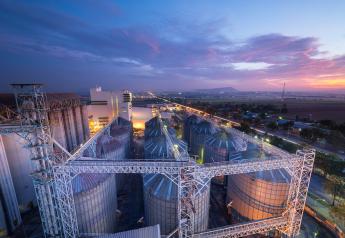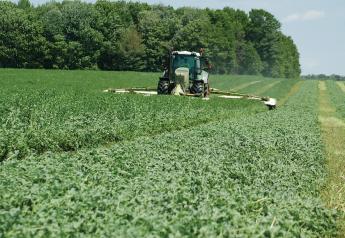Below are comments submitted to the U.S. Department of Labor by the Wisconsin Dairy Business Association regarding changes to child labor laws on U.S. farms. Note: Comments are due today. To submit your own comments, click here.
To: The Department of Labor’s Wage and Hour Division
From: Laurie Fischer, Executive Director
Date: November 30, 2011
Re: Comments on the proposed changes of 29 CFR Parts 570 and 579 Department of Labor, Wage and Hour Division (RIN 1235-AA06)
The Dairy Business Association is an industry organization comprised of dairy producers, processors and corporate partners. Our mission is to promote the growth and success of all dairy businesses in Wisconsin. We appreciate the opportunity to comment on the Department of Labor Wage and Hour Division’s (the Department) proposed changes to the Child Labor Standards.
Our members treat the education and safety of all dairy employees with the utmost importance and diligence. That holds especially true for hired youth employees. Our members pay extra attention to youth employees not only because they are the future of our industry but also they are our children and our neighbors, friends and family members. We believe effective safe guards have been put into place that protect and in fact reduce the risk of injury for these employees, as required by the current Fair Labor Standards Act.
Based on our review of the proposed standards, they are based on a lack of basic knowledge of farming practices, which has resulted in proposed standards that are practically unreasonable and go well beyond workplace safety.
Parents are the only people who can determine if youth under the age of 16 are capable and mature enough to perform specific tasks on a farm. They know their child’s limitations and obviously look out for the child’s best interest. The best way to protect youth farm workers is by fostering open dialogue between farm owners and parents to outline the specific duties to be performed, the skills required and the respective responsibilities. The proposed changes in NPRM Child Labor Regulations, 29 CFR Parts 570 and 579 go beyond practical or reasonable; potentially endangering our youth.
Parental Exemption
The parental exemption provision contained in the proposed rule change must be revised. Modern family farms are typically made up of multiple generations of multiple families who combine resources to find efficiencies under various business structures. Under the proposed child labor rules, children of a co-owner would not be allowed to work on the family’s farm under the parental exemption. This limitation is unacceptable and will result in the loss of generations of family farmers. As proposed, the only way a youth under 16 years old could work on their multi-family farm would be if that 16 year old was also enrolled in an ongoing vocational program and was a student-learner. The social and economic barriers for rural
youth to satisfy these requirements -- including but not limited to access to transportation, access to appropriate educational institutions and the means to pay for additional classroom education – will be prohibitive, and our rural youth will lose yet another opportunity to learn a valuable and transferrable skillset. We believe this goes beyond the intent of the parental exemption.
The proposed parental exemption also inhibits a farmer’s ability to plan for the future.
Succession planning is vital to the stability of family farms. The average age of a farmer is about 57 years old. Many of our farmers are starting to contemplate their future and the farm’s future. Passing a farm down to the next generation or selling it takes a lot of time and preparation.
Essentially, the proposed rules would prohibit the next generation from learning about the family business by working on their parent’s multi-family or multi-generational family farm; creating significant obstacles for succession planning. Children of farmers must have the opportunity to obtain a hands-on farm education on their own family’s farm, even if the farm is owned by multiple families. The proposed the parental exemption must be revised to address the changing structures of modern family farms.
Tractor Safety Certification Exemption
The tractor safety certification exemption must be reinstated. Eliminating the tractor safety certification exemption for hired youth employees will essentially eliminate the tractor/farm safety course offered by the Future Farmers of America (FFA) and 4-H programs in Wisconsin. These courses have long-proven to be a valuable source of training for 14- and 15-year olds who are interested in pursuing a career in agriculture or whose parents own or operate a farm. Most children who work on their parent’s farm take these courses to learn how to safely operate a tractor and other farming equipment. These certification courses play a vital role in ensuring the safety of youth on the farm. The removal of the certification exemption will effectively eliminate access to these FFA and 4-H programs, which we fear will result youths continuing to operate tractors on their parent’s farm, but without any formal safety training. This result would increase – not decrease – the risk of injury or death.
Existing Wisconsin law requires all youth, including those who work for their parents, to complete and pass a training course to operate agricultural machinery on public roads. Wisconsin’s tractor safety program best fits the needs of Wisconsin’s residents. It is not a one size fits all solution, as the proposed rules would suggest. Our tractor safety programs are tailored for their community using the expertise of implement dealers, University Extension specialists, agriculture instructors and others to educate our youth to safely operate tractors and agriculture machinery. Again, removal of the certification exemption will cause more long-term harm than good.
DBA respectfully requests the Department consult stakeholders and organizations such as the National FFA and 4-H when revising the proposed rules. These organizations are the largest
youth development programs in the country, and they have decades of experience providing valuable safety training for this age group. The fact that these organizations were not originally consulted by the Department prior to issuing the proposed rules illustrates a lack of due diligence, research, balance and practicality.
Powered-Driven Equipment
The proposed definition of “operating” machinery casts a broad net that goes well beyond the intent of safety. A number of actions described in the definition take little to no training to be performed safely. This is another example of the Department drafting standards without practical farming knowledge.
DBA’s greatest concern with this section is the prohibition of operating milking equipment. Modern dairy operations have vastly improved over the past ten years, and most existing milking parlors separate the worker from the cows. Modern equipment and process upgrades have dramatically decreased the chances that a person could be fatally injured or wounded while milking cows. There is no evidence that using powered milking equipment is, or has been, hazardous for farm employees, including hired youth employees. Indeed, modern milking equipment is ergonomically designed to be easy to use without causing physical strain on an employee. Milking is a basic function at the majority of farms in Wisconsin and is not worthy of being considered as a hazardous occupation. The proposed rules must be revised to allow youth employees to milk cows on Wisconsin’s farms.
Working With or Around Animals
DBA agrees that not all duties on a farm are appropriate for certain ages; however, the current standards address those duties already. A blanket prohibition against youth working with animals far exceeds any intention of providing a safe workplace. By prohibiting youth from working with or around animals with “unknown behaviors” the Department has essentially prohibited youth from feed calves, raising cattle for the county fair, FFA members working on their Supervised Agricultural Experience projects – or essentially any interaction at all with animals.
There is no way to know the behavior of any animal, there is no way to define “unknown behaviors” and legislating based on such unknowns for the purported purpose of protecting young farmers is unreasonable and illogical. A prohibition on working with animals will only delay the eventual handling of animals. When that time comes, the next generation will have lost safety training opportunities, will have more fear, and will be at a greater risk.
In particular, the proposed rules would prohibit youth under the age of 16 from working with animals in several settings and circumstances. For example, the proposed rules prohibit animal husbandry practices that “inflict pain” upon an animal. We question the ability of a federal agency to define what practices might inflict “pain” as it relates to animals, let alone determine any particular animal’s pain threshold. We also have significant concerns over the possible interpretations of this provision by extreme animal rights activist groups who would prefer to see an end to all agricultural practices. This could open an extremely divisive conversation the Department never intended to have.
A farmer’s particular knowledge of what is hazardous on his or her farm is the key to workplace safety on a farm, not a government agency’s one-size-fits-all standard. As any farmer knows, circumstances determine the potential hazards of the day. The Department should be advocating for training opportunities for youth to gain the valuable knowledge of a seasoned farmer, not prohibiting these opportunities.
Finally, the proposed standards are confusing at best, were written with no basic farming knowledge and rely on little to no study of the current safety programs offered. We understand the Department is attempting to bring agriculture child labor standards in line with non-agriculture standards. However, the Department has failed to show evidence which would indicate a need to do so.
The current proposed rules will deter youth from obtaining employment on a farm, now and possibly in the future. Agriculture is a viable and admirable career option and is one that rural families count on to survive. The proposed child labor standard revisions indicate otherwise and, if finalized as proposed, create a real possibility that there will not be a “next generation” of family farmers. This is an unacceptable outcome. The proposed rules must be revised to address the significant concerns of farming families.








